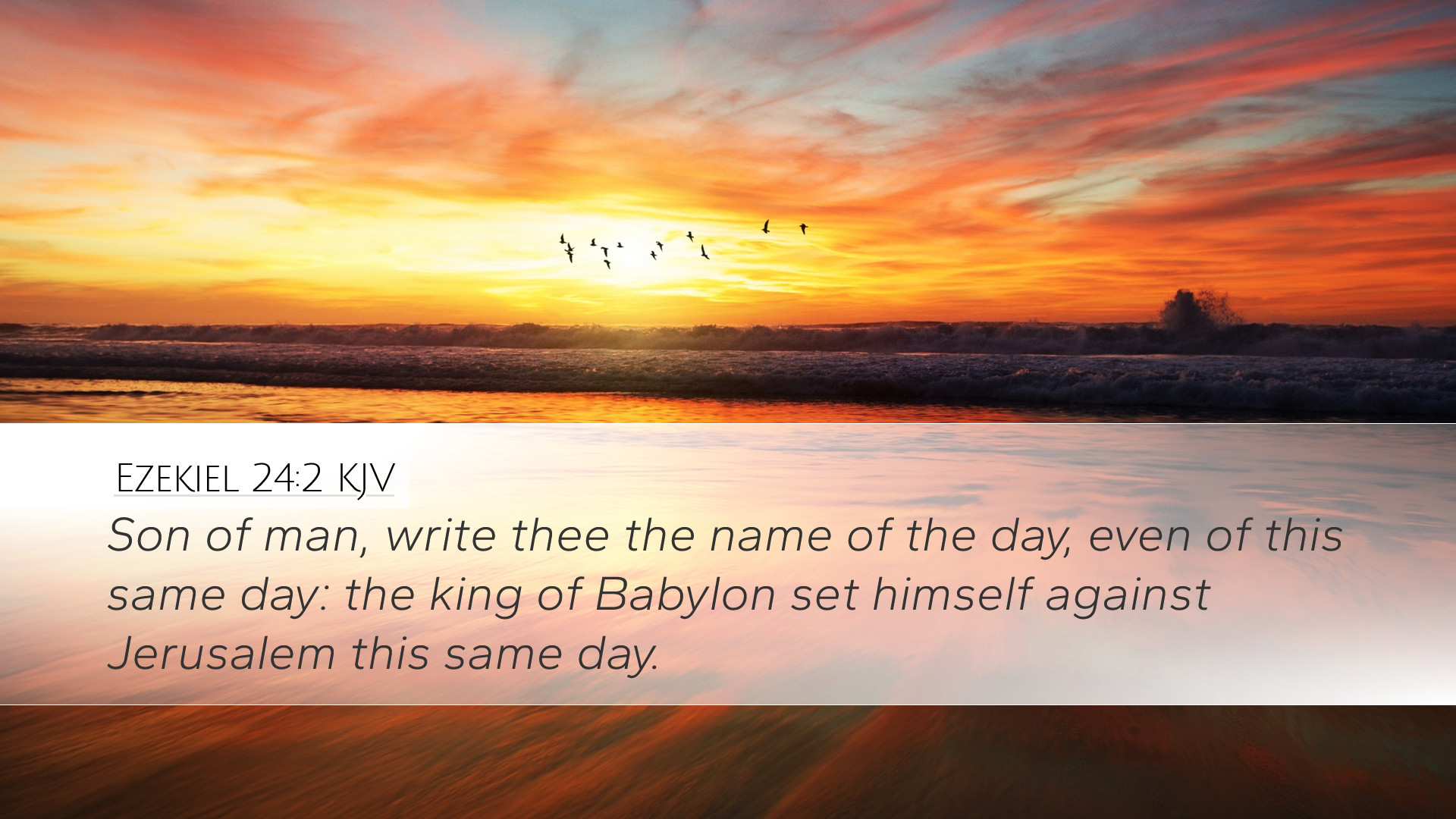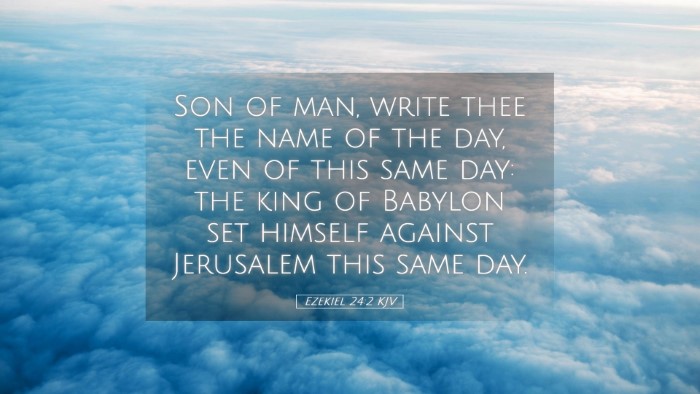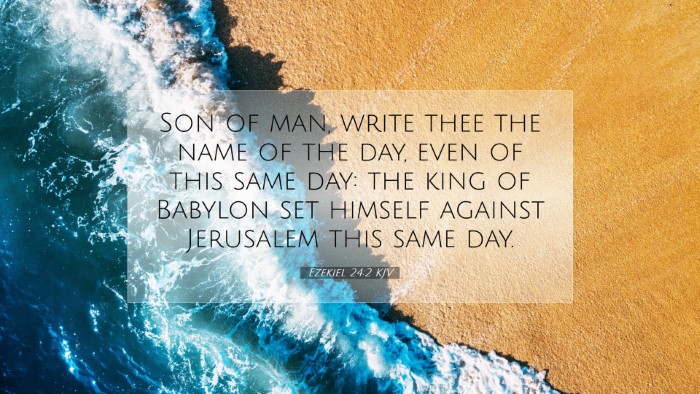Ezekiel 24:2 Commentary
Ezekiel 24:2: "Son of man, write thee the name of the day, even of this same day: the king of Babylon set himself against Jerusalem this same day."
This verse marks a significant moment within the prophetic ministry of Ezekiel, illustrating the vivid imagery and critical events set against the backdrop of Jerusalem's impending siege. A synthesis of insights from various public domain commentaries offers a broader understanding of the implications of this verse.
Contextual Background
Ezekiel was a prophet who prophesied during a time of tumultuous upheaval for the people of Israel. His ministry began in 593 B.C. and lasted until approximately 571 B.C., a period characterized by the Babylonian exile. This specific verse is pivotal as it not only announces a historical event but also signifies God's active role in the unfolding drama of judgment against His people.
Historical Significance
Matthew Henry notes the importance of this date, emphasizing that documenting it serves as an anchor for future generations to recognize God's justice being enacted through the Babylonian king. The "name of the day" denotes a moment of tragedy, one that invokes both sorrow and reverence.
The Symbolism of Writing
Albert Barnes highlights the act of writing as a deliberate effort to memorialize and convey the gravity of the situation. By instructing Ezekiel to write the date, God underscores the importance of this moment not only for the current generation but for those that follow. It serves as a warning and reminder of the consequences of unfaithfulness and idolatry.
Theological Implications
The events surrounding this verse extend beyond mere historical record; they speak to several profound theological themes.
- Divine Judgment: The siege of Jerusalem serves as a reflection of God's displeasure against Israel's persistent rebellion and idolatry.
- God's Sovereignty: Despite the overwhelming power of Babylon, the narrative reaffirms God's ultimate authority over nations and history.
- Hope Amidst Judgment: Even amid judgment, the prophetic message often contains seeds of hope for restoration and redemption.
Enduring Consequences
Adam Clarke elaborates on the psychological aspect of this event. The record of such a day not only serves as a historical marker but also instills a sense of dread among Ezekiel's contemporaries. It reminds them of the real and tangible consequences of their actions—emphasizing the seriousness with which God regards His covenant with Israel.
Practical Applications for Today
As we examine the text, several applications emerge for pastors, students, theologians, and scholars:
- The Importance of Historical Context: Understanding the time, culture, and circumstances surrounding biblical texts enhances interpretation and application today.
- The Relevance of Prophecy: The prophetic warnings in the Bible are not merely historical but continue to challenge modern readers to consider their own fidelity to God.
- Documenting God's Works: The act of writing and remembering God's dealings with humanity remains vital for faith communities today. It encourages reflection on God's faithfulness amidst trials.
Conclusion
Ezekiel 24:2 stands as a testament to the profound interconnectedness of history and divine purpose. It invites believers to reflect deeply on God's justice, the ramifications of sin, and the hope for reconciliation. Each commentary enriches our understanding, fostering a more robust theological framework to engage with God’s word.


